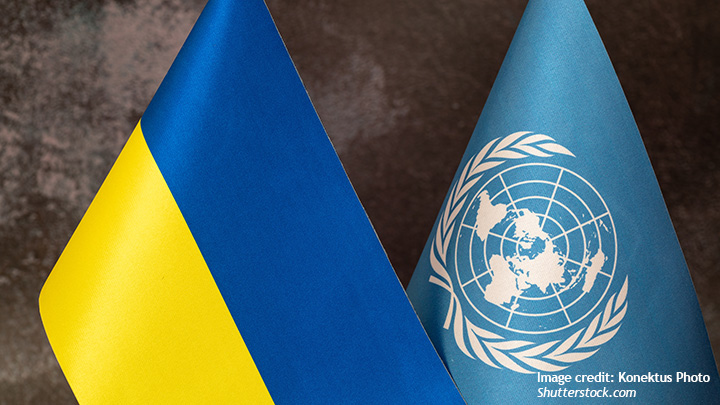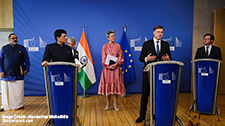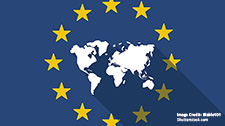War in Ukraine: Between Solution Finding and Global Bloc Building

Gabriela McGuinty Cañete, Maximilian Dippold and Yi-Chieh Chen
Executive Summary
• The geopolitical landscape surrounding the war in Ukraine and the various proposed solutions to end the conflict are complex.
• The war has impacted global power relationships and highlighted not only the decline of the UN’s rules-based order but also the challenges faced by established alliances such as NATO. It has also led to the emergence of new power blocs.
• The war in Ukraine is not merely a conflict between Ukraine and Russia, but a shaping force for the role of third parties in foreign conflicts.
• The proposed solutions reveal the medium and long-term geopolitical ambitions of the diverse actors involved. The Western strategy of sanctions and military support could influence the Indo-Pacific to deviate from its neutrality, while an opportunity for peace negotiations may arise if established neutrality is maintained.
• Despite the various proposed solutions, the international community does not expect the war to end soon, and Ukraine may find itself in a precarious position between the power struggles of emerging blocs.
• The multifaceted bloc building system and the intertwined geo-political landscape present new challenges to global peace and security, requiring a nuanced and collaborative approach to conflict resolution.
Related Publications
-
EU-Thailand FTA Negotiations: IUU Fishing and Human Rights Remain Obstacles
Thailand’s fishing industry, which at its height saw as many as 200,000 migrant workers from neighboring Laos, Myanmar, and Cambodia caught in a brutal system of abuse, withered global criticism […]
-
Trade, Connectivity and Supply Chains in EU-India Relations
In the decade and a half since 2007 when the EU and India first started their FTA negotiations, the world economic order has undergone a sea change. During that period, […]
-
ISDP Annual Report 2023
ISDP’s Annual Report for the year 2023. We look back on 2023, a year in which tensions and conflicts captured the strategic space in ISDP’s focus areas, making headlines around […]
-
India-Middle East-Europe Economic Corridor: Will It Get Subsumed by Its Grand Vision?
The recently concluded Group of Twenty (G20) Summit in New Delhi under India’s presidency was, undoubtedly, a crowning moment for India. From providing the G20 with new relevance among the […]
-
Quad Plus EU: A Viable Option for the Times?
Today, the primary Indo-Pacific contest is not just about the China-US hegemony. It also involves a range of so-called “middle powers” – including Australia, France, Germany, India, Indonesia, Italy, Japan, […]




